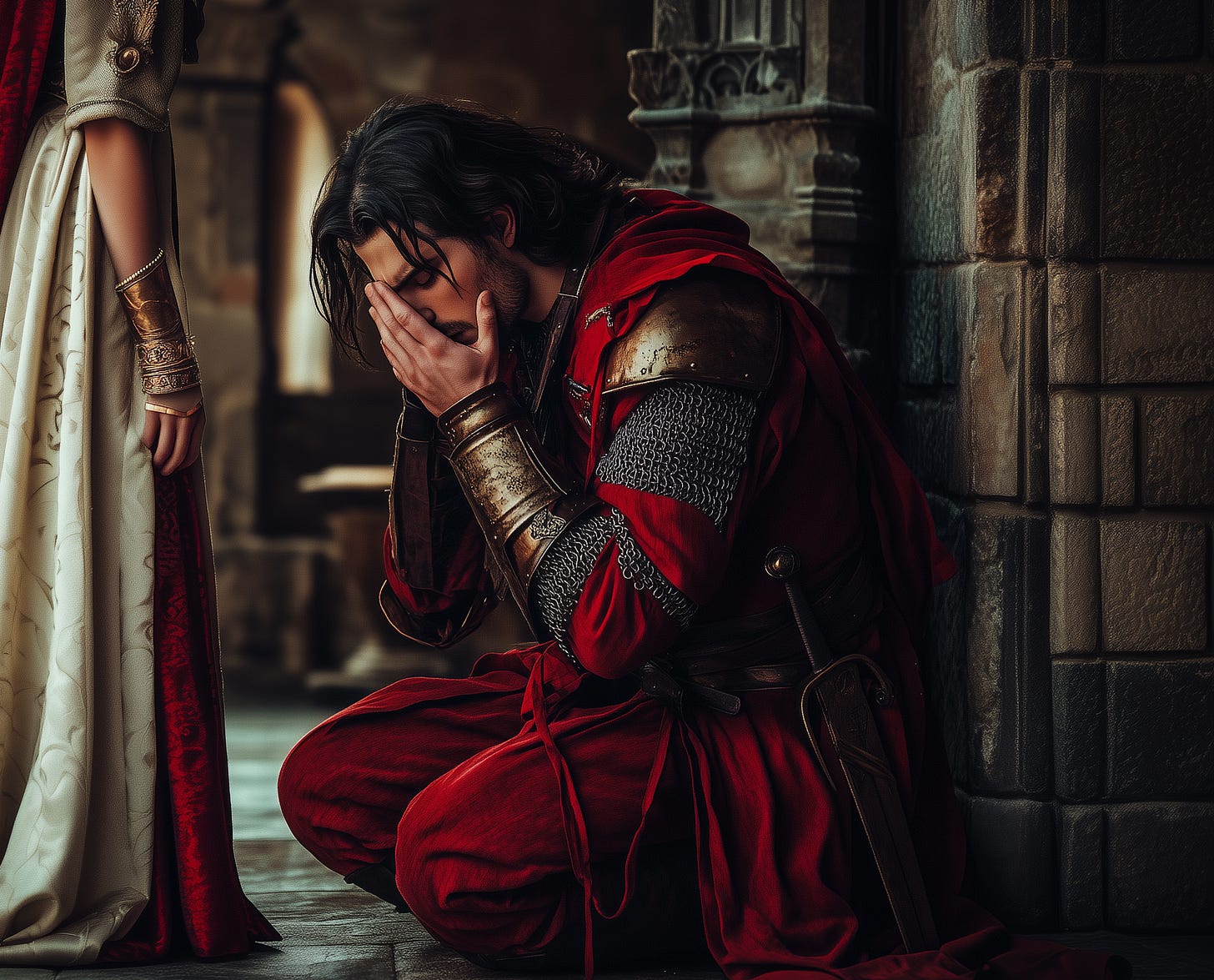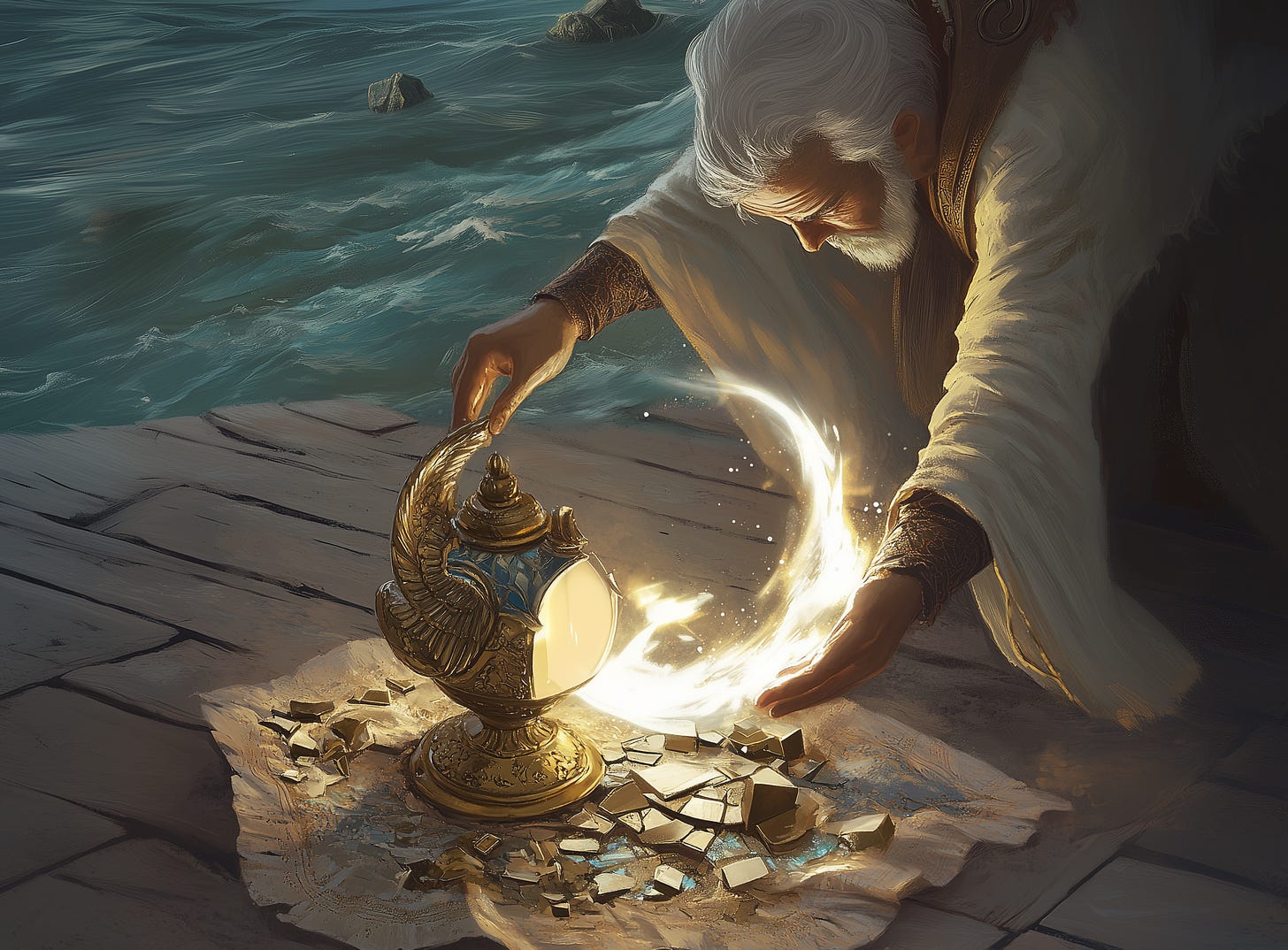Why I Write
It took approximately 700-900 hours to write and publish The Pyromancer's Scroll. Why did I do it?
By a very conservative estimate, it took me approximately 700-900 hours, over the course of 7 years, to write, revise, edit, typeset, order, market, and launch The Pyromancer’s Scroll.
That’s the equivalent of a part-time job for a whole year.
I would need to sell 5,000+ copies before my royalty income begins to come close to compensating me for this time.
(For perspective, only about 12% of books published by the 10 largest US publishers sell that many copies.)
But I did not become an author for the income.
Today, two days into the launch of The Pyromancer’s Scroll, I have been reflecting on my reasons for writing the book and being an author in general.
1. Write Stories that Have Power
I have a vivid memory from when I was maybe around 7 or 8. I was reading The Lion, The Witch, and the Wardrobe on our family room couch. When I read about the final battle between Peter’s army and the White Witch’s army, I was astonished by Edmund fighting his way through three ogres to reach the Witch to break her wand.
Powerful stories have moved me to tears since then:
The moment in The Count of Monte Cristo when the Count, Dantès, realizes his quest for vengeance has unintentionally harmed innocent people he loved.
The end of A Tale of Two Cities, when Carton switches places with Darnay to save his life on the eve of his execution.
The moment in The Way of Kings when Kaladin and Bridge 4 give up their chance of freedom to go into the thick of a hopeless battle to save Dalinar’s army.
My goal is to write stories that move the soul in the same profound way that these stories moved mine.
2. Give People Clean Reading Options
Over and over, I hear people lamenting how hard it is to find recently published books that have clean content. (Even some authors that I know and respect have disappointed me with content in their stories that I would prefer not to read.)
One problem is the lack of any labeling system—unlike movies, which have ratings, there’s no easy way to tell if a book on the bookstore shelf meets your standards until you read it. (And the first several chapters may be just fine, until you hit the gratuitous content halfway through.)
One of my goals is to be an author that readers can trust, to label my books as such, and to advocate for both clean standards and a clear rating system in the larger literary world.
3. Give People Role Models and Heroes
A podcast I listened to recently distinguished between affirmational protagonists and aspirational protagonists:
An affirmational protagonist is a flawed, imperfect character who we can relate to (think, Frodo or Pippin).
An aspirational protagonist is a character who represents the ideals we aspire to have (think, Aragorn or Gandalf).
My goal is to write stories that provide both kinds of heroes—including characters that begin affirmational but rise to become the people we aspire to be:
Adara begins as a stressed, overwhelmed, insecure youth placed in a position of leadership she is not prepared to take on. But she develops over the course of the book to become a confident, compassionate leader who learns to trust the voice of wisdom in her heart.
Durrin spends the whole story as an intensely driven character. (I wish I had half of his discipline!) But his goals change from selfish, earthly success to selfless heroic acts.
Halorn is a truly aspirational character—the kind of father and friend that I hope I can become. He has been my role model so many times in the last 7 years.
4. Explore Deep Questions
I have written before about spiritual resonance—the power of fantasy stories to explore spiritual ideas with concrete imagery.
The Pyromancer’s Scroll explores some deep “what-if” questions:
What would it look like to be influenced by unseen demons and angels?
What would it look like if heaven and hell were visible objects in the sky?
What would a miraculous healing look like and feel like?
What would it look like to be able to glimpse legions of angels around us?
What does it mean to have a divine mantle of leadership?
What does it look like to attain forgiveness and redemption, even for horrible crimes?
What does receiving divine power look and feel like?
5. Change Lives
A couple days ago, I received this message from one of my beta readers:
I wanted to thank you for your book, back when I read the first draft! The theme of forgiveness helped me forgive someone I had been needing to forgive.
That is why I write.
Thank you for being a part of my journey!
You can download or read the first third of The Pyromancer’s Scroll for FREE here.
Or you can buy the ebook, paperback, or hardcover on Amazon/Kindle here, or on Barnes and Nobles' here, or on my website here. (I get a larger portion of the revenue if you buy from my website than from other sites.)




This is exactly what I aim to do with my own work as well! I’m definitely going to check out your writing now! :)
Jeremy, this is amazing - Love your thoughtful perspective that doing something for the financial prosperity or the money is a poor priority motivation. We hopefully do things because we believe what we do will change the world and bring something valuable to someone else. The money is a side benefit.